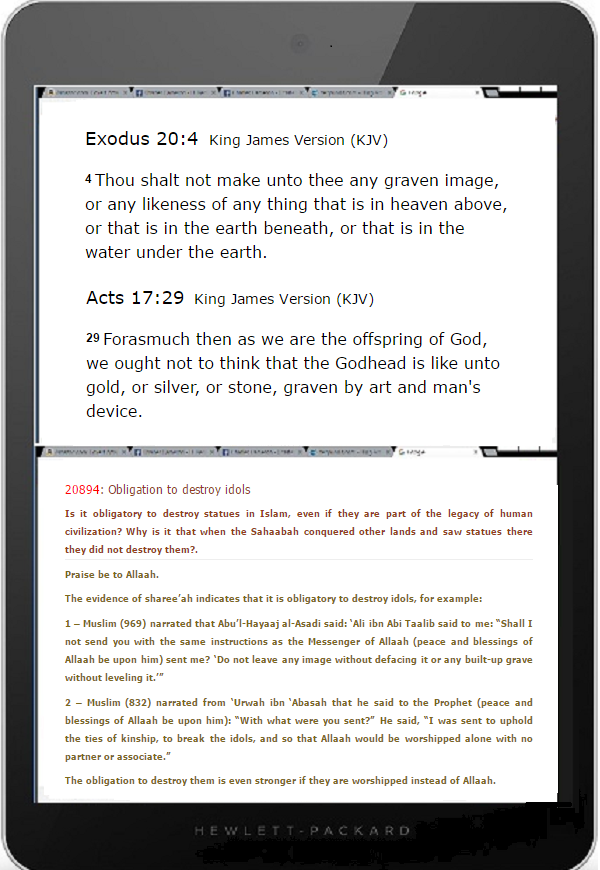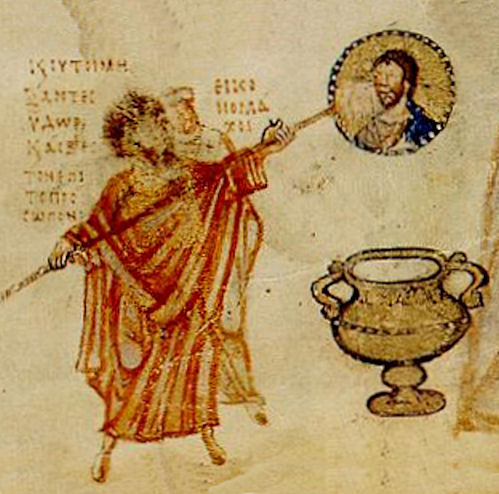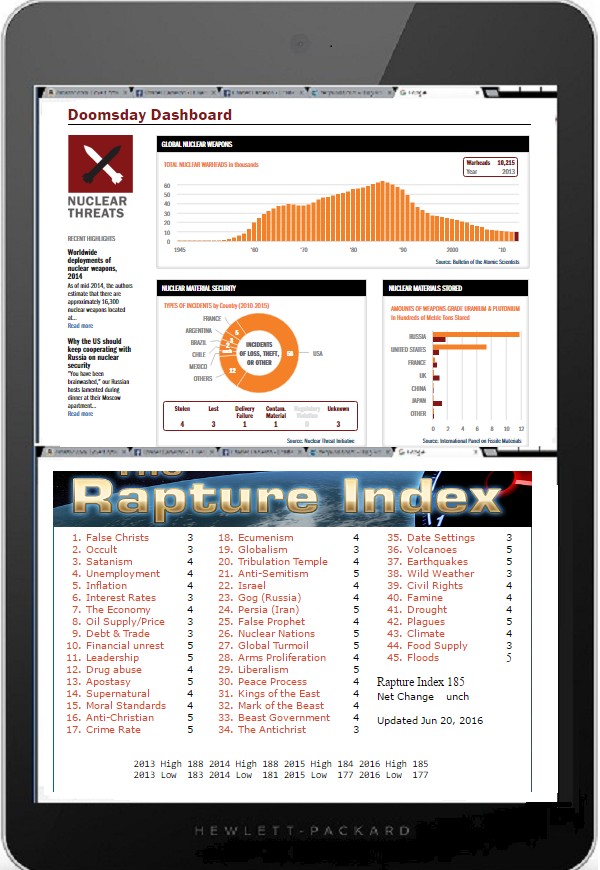I have no idea why I took Debate 101 my sophomore year of high school back in the Paleolithic. I‘m not an enthusiastic public speaker. Nor have I ever been inclined to become one.
Perhaps I was interested in learning advanced debating techniques so I’d always triumph in the important debates of daily life:
“You think you deserve that last piece of pizza? Let me tell you why you don’t.”
The explanation may be simpler:
- My personal experience suggests that teenagers aren’t terribly bright
- My later, more evolved, experience as a high school junior and senior suggests that sophomores aren’t terribly bright either.
Entering Debate 101, I was:
- a teenager and…
- a sophomore
The evidence, however circumstantial, is enough to convict.
If I was interested in learning debate technique, I was disappointed: the debate class wasn’t designed to systematically instruct students to taking apart their own position, reassemble it into a stronger position, and then use their new strong position to destroy their opponent’s position. This debate class was designed to cull skilled debaters out of the general student body who would then go on and compete in regional and state debate competitions. Some technique was dispensed from time to time in miserly bursts, Mostly though, it was one instruction-free speaking assignment after another. Those with innate debating instinct went on to join the school team with all the glory that bestowed (not much). The rest of the class had to live with disappointment (again, not much).
A debate format we were taught, Lincoln-Douglas (or LD), roughly followed this format I’ve adapted from Wikipedia:
1. The Affirmative (the person in favor of a proposition like “Free pepperoni pizza is a human right”) reads a pre-written case. Time taken: 6 minutes.
2. The Negative (the person against a proposition i.e. “No commie pinko scum, free pizza will destroy the fabric of society and lead to dancing”) cross-examines the Affirmative in an attempt to trip them up. Time taken: 3 minutes.
3. The Negative reads a pre-written case against a proposition and moves on to savage the Affirmative’s case without ruth. Time taken: 7 minutes.
4. The Affirmative cross-examines the Negative (“Why is it you want to make the pizza deprived into glue?”. Time taken: 3 minutes.
5. The Affirmative dissects both their opponent’s case and their own. Time taken: 4 minutes.
6. The Negative dissects the dissection of the Affirmative and summarizes the debate for the judge. Time taken: 6 minutes.
7. The Affirmative dissects the Negatives dissection of the Affirmatives’ dissection and summarizes the round for the judge. Time taken: 3 minutes
The LD format is adversarial: one debater speaks in favor of a proposition and their one speaks against it. Points are awarded by a judge. The winner is the debater who wins on most points.
I don’t know the specific format or scoring criteria my debate class used. I do remember the essence: if, in the course of your debate, you conceded that any of your opponent’s arguments had successfully debunked your own, you lost points. No points were given for being agreeable. Points were only given for being disagreeable. The more disagreeable, the better.
Being a mid-tier debater, I was pitted against a offensive lineman from our 4A state champion high school football team. I have linebacker height but not linebacker bulk: my debate opponent (we’ll call him “Brett”) outweighed me by 30-60 pounds. If our confrontation had been physical, I would have been dead. But I figured I was a better debater than “Brett”. I thought I could best him at LD.
Though we weren’t taught killer debate techniques, I had enough peasant cunning to throw “Brett” off. When our face off came, I threw all sorts of rhetorical tricks at “Brett” to make him concede that his positions were erroneous. I managed to be on offense even when I was technically on defense. My cross-examination peppered “Brett” from all sides. I’m sure my mid-tier dazzle was sufficiently dazzling.
It turns out being an offensive lineman is good preparation for LD debate. “Brett” did not counter-punch much and his counter-punches were ineffective but, in the end, it didn’t matter: Brett stolidly held his ground against my rush and conceded no points. I conceded no points because I was on offense the entire time. So it was a draw. We both got an A.
The argumentative hypothesis of human reason advanced by Hugo Mercier and Dan Sperber suggests that, as it goes in LD, it also goes in life: the purpose of human reason is not truth but victory. It not an disinterested search for ultimate enlightenment. It is an intensely self-interested search for wins.
And, as in LD, to win victory, you don’t yield on points. We reason to generate arguments. Weaponizing arguments is the highest calling reason. If reason produces arguments that win through an accurate approximation of the world as it really is, truth and victory align. If victory requires arguments that are more truthful than factual, truth and victory may never align.
Politics is the division of power. It divides through reinforcing cycles of fragmentation and consolidation. Fragmentation creates political opportunity by opening cracks in the division of power that can be selectively widened until they break off and you can grab your share of the fallout. Consolidation forecloses political opportunity by sealing cracks in your division of power so others can’t take power away from you.
A human trait is universally condemned by contemporary opinion is “confirmation bias“. Confirmation bias is commonly portrayed as a “bug” in our mental software since our first instinct is to search for evidence that reinforces our existing worldview rather than evidence that disproves it.
I disagree. If the argumentative hypothesis is valid, confirmation bias is no more a bug than “Brett” holding his position in the offensive line against a pass rusher is a “bug” or “Brett” holding his position against my cross-examining aggression is a “bug”.
In divying up power, any crack in your own power is a bug: they are an open opportunity for others to increase their power at your expense. Since argument is just one more means of dividing power, its consistency may be the hobgoblin of small minds to some but its inconsistency is a danger to minds of any size and the power they think they command.
Violent argument may seem the polar opposite of verbal argument but the underlying logic of seeking to fragment the power of others while consolidating your own is the same for both verbal and violent argument. The writings of the 19C French military theorist Ardant du Picq convincingly demonstrated that more battle casualties happen after one side breaks and runs then when both sides are holding their position. When one side breaks and runs, the other side can run them down and easily kill them from behind. If both sides stand and fight, casualties are lower: they face each other’s protected, up-armored front. (Poor du Picq later died from wounds suffered during a French battlefield defeat that ended in retreat during the Franco-Prussian War c of 1870-1871).
The victor in battle was the side that stayed consolidated while making the other side fragment. Sometimes the winning side uses a ruse to cause fragmentation: one favored tactic of cavalry generals from William the Bastard to Genghis Khan was feigning retreat before suddenly turning and attacking now that, in their instinctive rush to run down a fleeing enemy, their enemy was suddenly out of position.
Other times, one side’s patience reached the knife’s sharpest edge and a sudden event, rumor, or tremor of emotion caused them to fragment in ways opportune for the other side. In war, psychological breakage usually occurs long before physical breakage. Having to physical annihilate an enemy who holds their ground, painstakingly killing each enemy fighter one by one, is rare. When it happens, it’s as draining for attacker as it is for attacked. Infamously, the refusal (or inability) of Japanese soldiers to run away from overwhelming American firepower turned the War in the Pacific into a nightmarish quagmire of attrition.
In another debate format we studied that sophomore year of high school, the Congressional Debate format, the winners are those debate participants who give the best speeches under the constraints of Robert’s Rules of Order, the procedures that hypothetically govern procedures in the United States House of Representatives. Students who gain the floor are able to introduce legislation following the rules of the House. Other students can then speak for or against the bill during the time allotted. The bill then receives an up or down vote.
During the one Congressional Debate I participated in, a student introduced a bill to increase funding for hydroelectric dam construction. He gave an impassioned speech in favor of his bill. His main argument was that power generated by such dams was more environmentally friendly than power generated from fossil fuels.
His argument was constructed to fend off challenges from the right. It was reasonably well-fortified against attacks from that vector. However, structural weaknesses of his position suggested an obvious counter-ploy. I took the floor and made an easy kill by lackadaisically punching through his wide open left flank by decrying the “terrible environmental damage” wrought by hydroelectric dams. Since, even way back then and even in the Most Conservative State in the Union™, students were systemically indoctrinated by education and media into a reflexive left environmentalism, his bill was overwhelmingly voted down.
Normally, practiced debaters don’t throw up gimmes that let you feign retreat only to suddenly turn on them once they’re out of positon. However, this was a melee between students who’d, possibly, never encountered each other before and, possibly, never encountered each other thereafter. They were also mostly:
1) teenagers and…
2) sophomores
…with all the limitations those states imply.
They were like settled farmers, fighting on foot, who encounter steppe nomads riding on horseback for the first time: the nomads ran the obvious ploy, the farmers fell for it and chased them, the horse riders on their adorable little ponies swung around with unanticipated speed, and slaughter ensued.
However, such crude tactics don’t work against entrenched infantry well-schooled in the cunning of the steppes. They also don’t work against entrenched debaters schooled in the earthy cunning of rhetoric. Facing that species of opposition, the gap opened by running to the left while remaining anchored on on the right opens you to deadly counter-charges of You-Were-For-It-Before-You-Were-Against-It-Flip-Floppery inconsistency, Tribute-That-Vice-Gives-To-Virtue hypocrisy, and Profit-Over-Principles/People deceit, among others. Though any argument is designed to win and not to find truth, it’s always a bad argument to say so explicitly. The best argument is arguing that your argument’s purpose is to personify Truth and that opposing arguments are either mistaken or, more insidiously, deliberate falsifications, driven purely by the blackest of political calculation and unenlightened self-interest.
In the future, it will become ever more fashionable for the fashionable to charge enemies with “cognitive bias” instead of or in addition to traditional accusations of inconsistency or opportunism. This attack says that not only is an argument stupid and wrong but that the opponent’s brain is physically incapable of devising any argument that isn’t stupid and wrong. Opponents will look for any sign of panic in your eyes and, on the merest pretense, claim that they have discovered that you suffer from fatal cognitive dissonance, a defensive reaction by defective minds to stiffen their themselves against the radiant obviousness of greater truth.
Minds change, but do so infrequently. The first instinct is to hold your position in the face of events and arguments challenging what you already believe to be true.
This instinct is strong, and rightfully so: political change usually results after power shifts from one argument and to another. Other people have an agenda. They need only the right opportunity to pursue it. When power comes their way, it may seem like a revolution in thought where minds have changed. However, it’s not the balance of belief that changes (at least in the short run) so much as the balance of power tilting suddenly toward one position where, previously, it tilted toward another. When something that was previously improbable or even impossible becomes probable and even possible, it’s not because people didn’t want to do the thing before but, simply, through shifting events, now they can do it.
Back in June 2012, the state of Utah was on fire. As with any event, this was both an opportunity and a danger, depending upon the political position. Most political arguments raised up to cope with the burning already existed. The arguments most frequently advances were those that, hypothetically at least, were those that hit opposing arguments at multiple points simultaneously. Here’s an example posted to slashdot.org on June 24, 2012, with the ambition to be the argument to end all arguments:
The Salt Lake City Tribune reports that more than 9,000 people have been driven from their homes by a wind-whipped wildfire started by two shooters at landfill popular with target shooters who won’t face any charges because they were not breaking any laws. The fire was the 20th this year in Utah sparked by target shooting where low precipitation, dry heat and high winds have hit the West hard, exacerbating the risk that bullets may glance off rocks and create sparks. Despite the increasing problem, local agencies are stuck in a legal quandary — the state’s zealous protection of gun rights leaves fire prevention to the discretion of individuals — a freedom that allows for the careless to shoot into dry hills and rocks. When bullets strike rock, heated fragments can break off and if the fragments make contact with dry grass, which can burn at 450 to 500 degrees, the right conditions can lead to wildfires. Utah Gov. Gary Herbert has called on Utahns to use more “common sense” in target shooting urging target shooters to use established indoor and outdoor ranges instead of tinder-dry public lands. “We can do better than that as Utahns,” says Herbert, calling on shooters to “self-regulate,” since legislation bars sheriff’s officials from regulating firearms. “A lot of the problem we have out here is a lack of common sense.”
Hypothetically, if not in practice, this argument has breathtaking potential: it attacks the dumb rubes that support the other side, those that oppose legislation to deal with anthropomorphic global warming, those that support the right to keep and bear arms, those that want dual use of public lands (roughly 70% of the state of Utah is owned by the Federal government), and Truth and Unreason itself. If backed by sufficient power, the supporters of this argument could disarm the “wrong” voters, restrict recreational activities on public land, impose what they believe will “stop” anthropogenic global warming, and empower Truth and Reason itself. Left unsaid is that, under those same conditions, they’d have the opportunity to do anything else they wanted to as well, since the accomplishment of all the former goals would rid them of most division of powers in the hands of those opposing their other political agenda items.
For example, the “question” of global climate change, is actually five questions:
- Is the earth getting warmer?
- If so, what causes global warming?
- Should something be done about global warming or its causes?
- If something is done about global warming, what other agenda items can be piggybacked onto the something done?
- If other agenda items are piggybacked on a solution to global warming, who ends up ruling whom?
Some people view such questions as questions of truth or of morality or even of survival. Whether they are or not is a matter of argument and as such, whatever their truth, morality, or necessity, they are inescapably political questions. And behind any political question is but one inescapable question, infamously posed by Vladimir Illich Lenin as: ??? ????? (“who, whom?”).
Who rules who for whom?
Whatever the virtues of an argument, only fool accepts it without considering the division of power undergirding it or the division of power it will bring about if its premise is accepted.
Unfortunately…
- We have a bumper crop of fools.
- Those fools are filled with arguments of passionate intensity.
- Argument is politics.
- The only escape from politics is death.








